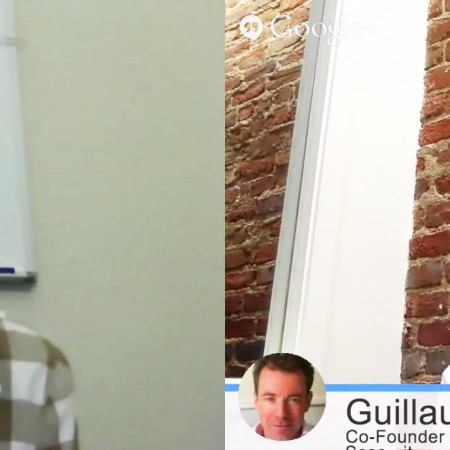#ContentWritingChat March 8 2016 Recap: Best Practices for Content Curation in 2016
We had so many new participants in this week’s Content Writing Chat – we couldn’t have been more thrilled with the turn out. Lots of new faces joined us. We were even a trending topic in the USA again, reaching our highest rank so far: #40! #ContentWritingChat is now trending in USA, ranking 40 — TT Mobile US (@TTMobile_us) March 8, 2016 If you missed it, there’s no need to worry because we have a recap of some of the best tweets of the chat. Keep reading to learn all about content curation! #ContentWritingChat March 8 2016 Recap: Best Practices for Content Curation in 2016 Join us Tuesday, March 8th at 10 AM CST for #ContentWritingChat with @gdecugis as our guest host! pic.twitter.com/wzsn0M7Czf — Express Writers (@ExpWriters) March 1, 2016 Our guest host for this week’s chat was Guillaume Decugis. Guillaume is the Co-Founder and CEO of Scoop.it, and an all-around awesome entrepreneur and influencer in the content marketing space. Julia has interviewed him previously on G+ Hangouts and Blab. He joined us to share his thoughts on best practices for content curation in 2016. Q1: Describe content curation and what it’s all about. #ContentWritingChat pic.twitter.com/8QXwcKBnUk — ContentWritingChat (@writingchat) March 8, 2016 What is content curation exactly? Guillaume, Kristen, Kyle, and Grenae all chimed in with great answers for our first question! @writingchat A1: so content curation is about discovering, selecting, enriching and publishing relevant content. #contentwritingchat — Guillaume Decugis (@gdecugis) March 8, 2016 A1. Content curation happens when you sift through the world of content, find posts relevant to your audience & share! #contentwritingchat — Kristen Dunleavy (@KristenWritesIt) March 8, 2016 A1 Curation adds your own insights, examples, experience w/someone else’s content #ContentWritingChat https://t.co/KWhPZf2h0p — Grenae Thompson (@DGGT) March 8, 2016 A1) Content is reflection of your values, concerns abt the world you live in. Curation is a method to advance the convo #ContentWritingChat — Kyle Murray (@TheKyleMurray) March 8, 2016 It’s all about discovering and publishing content that is relevant to your audience. Grenae said you should add your own insights, examples, and experience when sharing content from others. As Kyle mentioned, it’s a good way to advance the conversation. Q2: How does content curation fit into content creation? #ContentWritingChat pic.twitter.com/E2EJ69H5gp — ContentWritingChat (@writingchat) March 8, 2016 A2: so a good way to see it is as continuum: nobody’s 100% creating and nobody’s 100% curating. We all do a mix. #contentwritingchat — Guillaume Decugis (@gdecugis) March 8, 2016 A2) Key to being a thought/industry leader: not only make polished, relevant content, but to promote others who do same. #ContentWritingChat — Kyle Murray (@TheKyleMurray) March 8, 2016 It seems everyone agrees: you can’t have creation without curation! Guillaume mentioned that we should all have a balance between creating content and curating content. Kyle said it’s important to create great content ourselves, but to also promote others who are creating great content as well. Even our CEO, Julia, agrees. She said she can’t create without curation. Curating amazing content can be a huge source of inspiration! A2 As a content creator, I CANNOT create without curation. Finding/curating great content/news/etc is huge inspiration #ContentWritingChat — Julia McCoy (@JuliaEMcCoy) March 8, 2016 Q3: What is a good mix of content creation and curation? (80/20, etc.?) #ContentWritingChat pic.twitter.com/AFuYlcnfRU — ContentWritingChat (@writingchat) March 8, 2016 A3: There is no golden rule. My own rule: create as long as you’re good; curate the rest to reach your content goals. #contentwritingchat — Guillaume Decugis (@gdecugis) March 8, 2016 A3 Balance is KEY. Don’t overdo curation; add your voice. That said, share others’ great content consistently! #ContentWritingChat — Julia McCoy (@JuliaEMcCoy) March 8, 2016 A2c I prefer a 60 Creation/40 curation mix, but the ultimate goal is that all content is 90% useful/10% promo #ContentWritingChat — Chris Bell (@riskycontent) March 8, 2016 A3) I’d say follow the “two ears, one mouth” rule: Listen more, talk less. Something like 60/40 or even 70/30. #ContentWritingChat — Kyle Murray (@TheKyleMurray) March 8, 2016 Although Guillaume and Julia don’t have a specific ratio they follow, they both recognize that balance is KEY. Provide your audience with a mix of valuable content from you and from other sources. Both Chris and Kyle are fans of a 60/40 ratio. Your goal should always be to give your audience useful content and to tune in to what others are saying. A3)Whatever the balance, using curated content shows you care about what others are saying. Can’t just be our own voice. #ContentWritingChat — Jeremy Bond (@JeremyDBond) March 8, 2016 And as Jeremy said, curation shows that you care about what others are saying. You let others know that you’re listening when their content is part of your curation. Q4: What are some ways to find great content to curate? #ContentWritingChat pic.twitter.com/ePQToeLhc6 — ContentWritingChat (@writingchat) March 8, 2016 A4: Where does your audience get their information from? That is a good place to start. #contentwritingchat — Netvantage Marketing (@netvantage) March 8, 2016 A4: But also email newsletters you can subscribe to from influential blogs in your industry. #contentwritingchat — Guillaume Decugis (@gdecugis) March 8, 2016 A4. I <3 @feedly & @paper_li for finding great content to curate. #contentwritingchat — Kristen Dunleavy (@KristenWritesIt) March 8, 2016 A4 I use #TwitterLists, my email subscription, tried few tools including @scoopit #contentwritingchat https://t.co/Yg5bnNhw7n — Varun Kumar ☺ (@varunkr842) March 8, 2016 A4: Follow your favourite hashtag, sign up to newsletters, blogs and updates on @feedly or @reddit #contentwritingchat — Tajah Brown (@Tajah_Brown) March 8, 2016 We received a ton of suggestions for great content curation tips from everyone in the chat on Tuesday! As Netvantage Marketing said, you should consider where your audience is getting their information. Check out the websites and sources they’re reading. Guillaume mentioned using his tool, Scoop.it, but also said email newsletters are a great place to find content. Make sure you’re subscribed to some of the influential blogs within your industry to see what people are talking about! Kristen is a fan of Feedly and Paper.li. Varun … Read more

